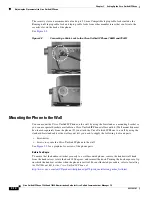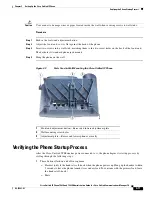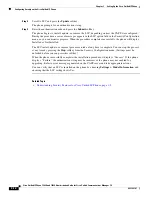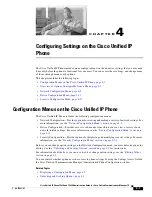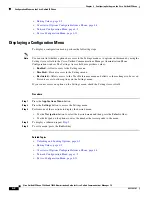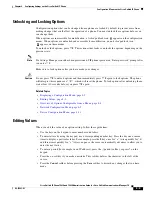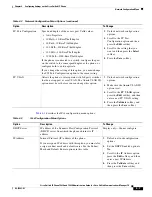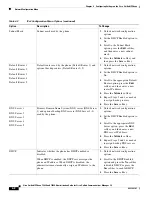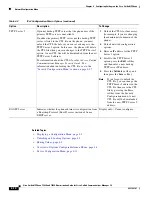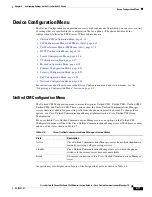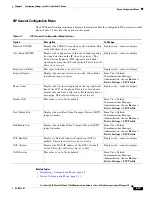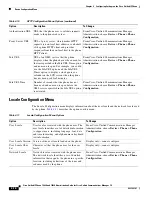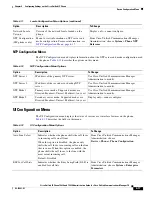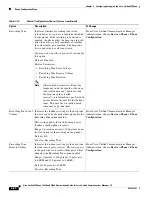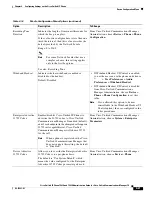
4-10
Cisco Unified IP Phone 7962G and 7942G Administration Guide for Cisco Unified Communications Manager 7.0
OL-15483-01
Chapter 4 Configuring Settings on the Cisco Unified IP Phone
Network Configuration Menu
.
Related Topics
•
Displaying a Configuration Menu, page 4-2
•
Unlocking and Locking Options, page 4-3
•
Editing Values, page 4-3
•
Overview of Options Configurable from a Phone, page 4-4
•
Device Configuration Menu, page 4-11
TFTP Server 2
Optional backup TFTP server that the phone uses if the
primary TFTP server is unavailable.
If neither the primary TFTP server nor the backup TFTP
server is listed in the CTL file on the phone, you must
unlock the CTL file before you can save changes to the
TFTP Server 2 option. In this case, the phone will delete
the CTL file when you save changes to the TFTP Server 2
option. A new CTL file will be downloaded from the new
TFTP Server 2 address.
For information about the CTL file, refer to
Cisco Unified
Communications Manager Security Guide
. For
information about unlocking the CTL file, see to the
“Security Configuration Menu” section on page 4-27
.
1.
Unlock the CTL file, if necessary
(for example, if you are changing
the administrative domain of the
phone).
2.
Unlock network configuration
options.
3.
Enter an IP address for the TFTP
Server 1 option.
4.
Scroll to the TFTP Server 2
option, press the
Edit
softkey,
and then enter a new backup
TFTP server IP address.
5.
Press the
Validate
softkey, and
then press the
Save
softkey.
Note
If you forgot to unlock the
CTL file, you can change the
TFTP Server 2 address in the
CTL file, then erase the CTL
file by pressing the Erase
softkey from the Security
Configuration menu. A new
CTL file will be downloaded
from the new TFTP Server 2
address.
BOOTP Server
Indicates whether the phone obtains its configuration from
a Bootstrap Protocol (BootP) server instead of from a
DHCP server.
Display only—Cannot configure.
Table 4-3
IPv4 Configuration Menu Options (continued)
Option
Description
To Change

